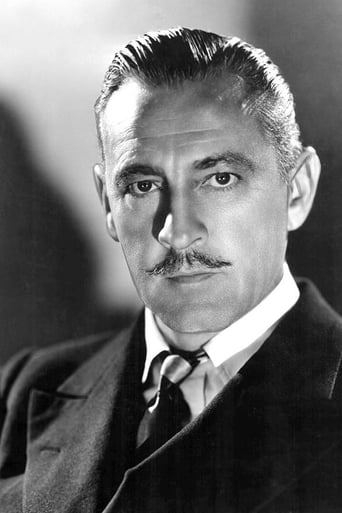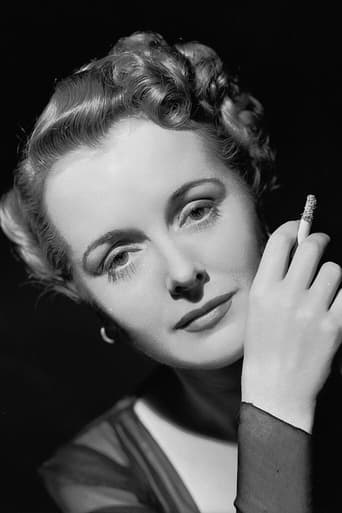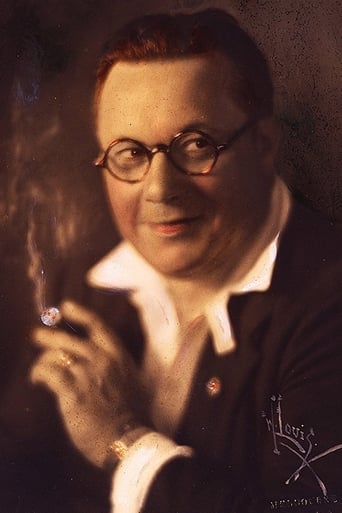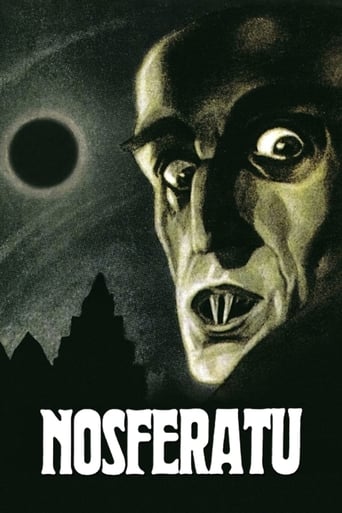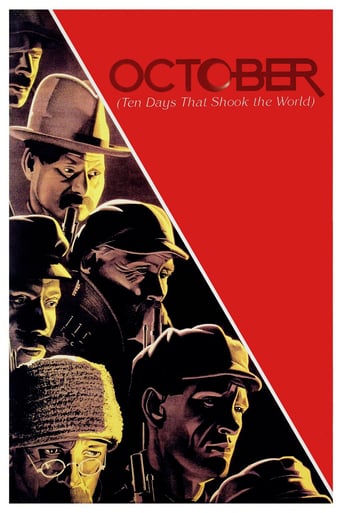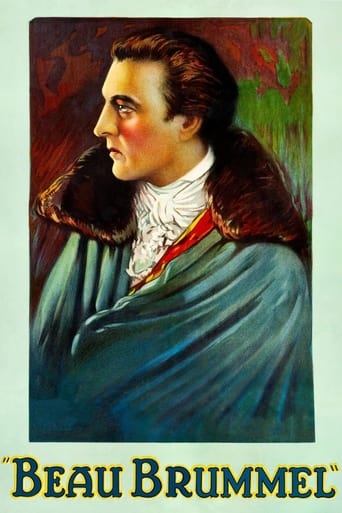
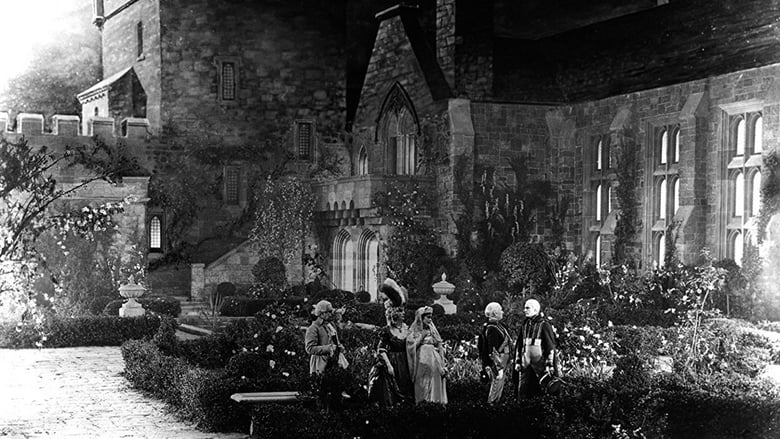
Beau Brummel (1924)
George Bryan Brummel, a British military officer, loves Lady Margery, the betrothed of Lord Alvanley. Despite her own desperate love for Brummel, she submits to family pressure and marries Lord Alvanley. Brummel, broken-hearted, embarks upon a life of revelry.
Watch Trailer
Cast


Similar titles
Reviews
Some BIG hollywood names in this silent from 1924... John Barrymore and Mary Astor (oscar for The Great Lie, but probably better known for Maltese Falcon.) Couldn't get bigger names than that! they both made the successful transition to talkies in the 1930s. Astor was pretty new to silents, but did a find job. Here, Lady Margery (Astor) ends up marrying royalty for traditional, practical reasons, even though she was in love with poor Brummel (Barrymore). Age-old story of bad timing, missed connections, regret. Willard Louis is Prince of Wales here... he died young at 44 of typhoid fever. Something about the silents... they seemed to have dumbed everything down for the audience, and really spelled everything out. Current opinion is that it was such a new medium that the directors weren't sure just how much needed to be said in title cards, so they erred on the side of over-explanation. It's good, as silents go. LONG. but good. kind of goes on and on, but there was a story to tell. Picture quality and title cards are excellent. Must have been a professional restoration. Directed by Harry Beaumont, who will be nominated for "Broadway Melody" 1929.
It's interesting how much 'wit' can be found even in a film without spoken words. "Beau Brummel" is playful, a little naughty, and at times quite sad. The acting here is notably restrained and natural for a silent film. with John Barrymore leading the way in an excellent performance as Gordon Byron 'Beau' Brummel. Brummel was a real person, even though the film acknowledges up front that his escapades have been largely fictionalized by legend. In this reality, Brummel was an 18th century army officer and dandy, who, despite his lack of wealth or noble blood, partied with the elite, romancing the women, befriending the men, and being a style and trend setter. What gives this a sense of drama to go with the playful social satire is the fact that Beau is denied the one woman he really loves, so his other successes are all a bit hollow. Also, in the end Brummel has little other than his smarts and charm to stand on, which keeps him always one insolent move from falling into poverty and disrepute. There are weak spots. The photography and direction aren't particularly imaginative, with a very stagy feel to the blocking and camera angles. Most of the film is shot in head on, eye level medium 2-shots. The sets also often look a bit more like something designed for the stage than for the 360 degree vision of film. But if this isn't a great film, it's a good, clever, enjoyable one, and a chance to see Barrymore, said by many to be the finest actor of his time, as a comparatively young leading man.
BEAU BRUMMEL (A Warner Brothers Classic of the Screen, 1924), directed by Harry Beaumont, from the play and historical data by Clyde Finch, stars the legendary John Barrymore in one of his most prestigious films of the silent era. Mixing fact and fiction into the life of George Bryan Brummell (1778-1840), an English social arbiter, the opening inter-title sums it up best: "Nowhere in all history can be found a more amazing character than George Bryan Brummel, the friend of princes, the arbiter of fashion and the social ruler of England during the reign of George II. And nowhere in all fiction can be found more romance than was crowded into the life of this penniless commoner, whose natural charm and studied insolence made him the greatest dandy of all time - the immortal Beau Brummel." For the plot summary, beginning in the year 1795, George Bryan Brummel (John Barrymore), British Army officer and captain of the Tenth Hussars, deeply loves Margery Werthaim (Mary Astor). Because her mother (Clarissa Selwynne), "ambitious, relentless," finds Brummel to be a young man of no importance, insists Marjory wed Lord Alvanloy (William Humphrey) instead. As she takes her daughter to get married, Alvanloy leaves Brummel in the garden in humiliation by throwing him a sixpence. Next scene: "Revenge was all he thought of now. He would use his charmed wit and personal appearance in a game against the society which has robbed him of his love." For the years to follow, Brummel does just that. Through the guidance of the Prince of Wales (Willard Louis), Brummel makes his way through society, resigns from the Army, abandons his whig for a more natural hair, has an affair with Mrs. Snodgrass (Betty Brice), the landlord's (James Marcus), wife; and makes his indiscretions with the ladies of the court, particularly Lady Hester (Carmel Myers), wife of Lord Henry Stanhope (Richard Tucker), whom he finds terribly annoying; and Frederica Charlotte (Irene Rich), sister-in-law of the Prince of Wales, whom he claims to be a tender woman, all of whom he loves and leaves. Making many enemies and finding himself heavily in debt, he at first serves time in a jail in Calais, and later finds himself living in poverty. His only true friend during his declining years is his servant, Mortimer (Alec B. Francis), whom he dismisses from his employ for being too helpful. Falling out of love with everything, Brummel is approached by Marjory, only to lose her again as explained with these words: "Death kills but once, life kills many times." What further develops remains to be seen. At first glance, BEAU BRUMMEL comes across as an overlong (128 minutes) dull costume drama about doomed love (with portions closely resembling George Du Maurier's PETER IBBETSON), redeemed by sincere yet "ham" acting of John Barrymore, from a young dandy to aged old man (with a striking resemblance to the older appearance of his brother, Lionel), and the ever youthful Mary Astor, both of whom would be reunited in DON JUAN (Warners, 1926), and supporting Claudette Colbert in the sound comedy, MIDNIGHT (Paramount, 1939). Looking over and comprehending everything not absorbed the first time around, this can now classified as a rich atmospheric production with fine acting, by 1920s standards, and detailed period pieces of long, long ago. Although there's really no action involving sword play to stir up excitement, there's little suspense midway involving a duel a Bowling Green between Brummel and a jealous husband.BEAU BRUMMEL, a fortunate survivor of the silent film era, is not as relatively known as others from that era. In the wake of home video, however, it was placed on video cassette during the late 1980s through various distributors, including Video Yesteryear and Grapevine Video, just to name a few, mostly with missing footage and poor quality visuals. It can also be acquired in the DVD format as well.Cable television's Turner Classic Movies brought BEAU BRUMMEL back to life by having a restored copy for its January 29, 2008 presentation accompanied by new and exceptional orchestral score conducted by young film composer James Schafer of Rancho Cucamonga, California. Regardless of host Bob Osborne announcing BEAU BRUMMEL making its "world television premiere," in fact, has played on television before in April 1994 on the Nostalgia Channel as part of its Saturday night weekly presentation of "When Silents Were Golden." Aside from an already pre-recorded orchestral score from a 1930s reissue used for this feature, watching BEAU BRUMMEL or any silent movie for that matter, couldn't really be fully appreciated on the Nostalgia Channel due to its frequent commercial interruptions. Now that it has finally turned up on the commercial free TCM, BEAU BRUMMEL may have its chance of rediscovery to the delight of film enthusiasts wanting to compare this with its 1954 remake (with Brummel ending with two L's) starring Stewart Granger, Elizabeth Taylor and Peter Ustinov. (***)
Have always enjoyed John Barrymore's films and also his brother and sister Lionel and Ethel Barrymore. TCM introduced this film for the first time and it was a great joy to view a great masterpiece which was finally produced with a music score and this effect made this film greater to view and enjoy. John Barrymore plays the role as Beau Brummel who falls madly in love with Lady Margery Alvanley, (Mary Astor) and she is spoken for by another military man. This event destroys Beau Brummel's heart and soul and he decides as a soldier to resign and leave the military service. Beau becomes a Regency Social Climber in London Society and meets up with the Prince of Wales, (Willard Louis) and gains his friendship and begins to start his revenge on the British Society. Beau loves women and uses them to his own purpose and arranges for some romantic escapades for the Prince of Wales and in turn gains all kinds of favors. In other words, Beau is a silver fox who manages to out smart everyone and reaches his goal, but is he happy and what happens to him? Was surprised to learn that John Barrymore was 42 years of age when he appeared in this film and Mary Astor was only 18 years of age. Fantastic film, don't miss this one, you will enjoy it if you know who John Barrymore was and his famous film career and a life of drinking and more drinking.


